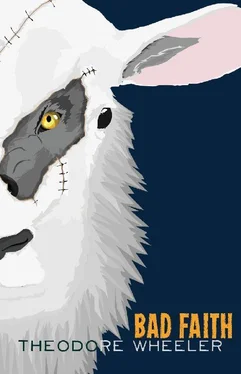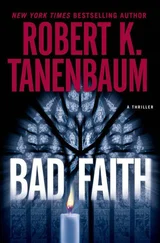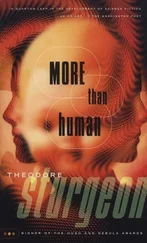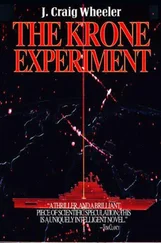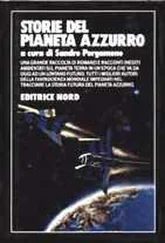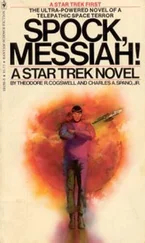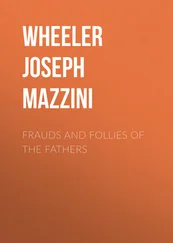Theodore Wheeler
Bad Faith
These stories originally appeared in the following publications: “The Mercy Killing of Harry Kleinhard” in Midwestern Gothic ; “This Missing” in The Southern Review ; “How to Die Young in a Nebraska Winter” in The Kenyon Review ; “Impertinent, Triumphant” on Five Chapters ; “Violate the Leaves” in Boulevard ; “The Current State of the Universe” in The Cincinnati Review ; “Attend the Way” in Heavy Feather Review ; “Bad Faith” appeared in separate parts as “The First Night of My Down-and-Out Sex Life” in Confrontation , “The Man Who Never Was” in Weekday , and “On a Train from the Place Called Valentine” in Boulevard and New Stories from the Midwest 2015 . The between-story vignettes appeared collectively as “Kleinhardt’s Women” on Fogged Clarity .
The Mercy Killing of Harry Kleinhardt
Aaron helped his dad down the steps and through the door of the Congress. He tried to hurry to a booth before they made a scene, his dad weak, barely upright, but the regulars at the bar had already turned to watch them struggle. Harry’s weight swayed more and more to Aaron’s arm until they got to a booth where Harry could drop into the vinyl and catch his breath. Aaron was breathless too. He wasn’t built to take care of people, but this was what he’d come home to do.
That afternoon Harry had received treatment at the county clinic outside town, where an IV dripped toxins into his veins. Harry had colon and lung cancer, and he required a stop at the Congress on the way home from the clinic. Aaron obliged.
“Here,” Aaron said, circling back from the bar to clack a gin and soda on the tabletop. Harry didn’t look up. He slid the drink under his bowed head to sip the top off.
Harry’s skin was damaged but he wasn’t an old man, in his middle fifties. His pores gaped and were discolored, his fingertips smooth with burns. Harry was a farmer. He’d worked with chemicals his whole life, fertilizers and pesticides. Nothing was capable of saving Harry now, he knew that. He took the chemo because the county was required to give it.
The Congress was a low-ceiling joint tucked into the side of a motel near the highway in Jackson County. Its patrons were a used-up sort of transgenerational loser. They huddled around dim candles and palmed cocktails. The collars of freebie Marlboro tee shirts lolled around their necks. This was the first time Aaron had been to the Congress, but Harry was known here. Everything in Jackson County was put into context by family — by whose daddy owned what, whose uncle worked where, whose granddaddy died fighting who. These people knew about Aaron because they knew his father.
Aaron left Jackson when he was fifteen, a runaway, and hopped freights to Omaha. He lived on his own a month before he got sent to Boys Town for stealing a car. Harry didn’t mind Aaron getting sent away to finish his schooling — he thought the boy might be better off far away. They were so isolated out on the farm. They didn’t belong to a church, they weren’t on speaking terms with their neighbors. Aaron had showed up at school as little as the county allowed. It wasn’t a good situation. Aaron had waited at home most every night, growing up, while Harry was at the Congress. He didn’t think anyone would miss him when he ran off. After the state stuck him in Boys Town he didn’t hear from anybody in town, except for sporadic phone calls from Harry that only confirmed to Aaron that his presence wasn’t necessary at home.
Most people in Jackson had forgotten about Aaron Kleinhardt by the time he came back to help his father die. He was thirty-two. He wore his hair shaggy, like he had in college, so he looked younger. The bangs hung over his eyes.
Among the regulars at the Congress was a guy called Little John. Little John had a crew cut that made a strange frame for his face. There wasn’t enough hair to balance his jowls, so his chin looked even fatter than it already was. It was Little John’s presence that perked up Harry. Once he came over to their booth, Harry lifted his head and scowled in an excited, mischievous way. Little John flipped a pack of smokes to the table.
“How do you know him?” Aaron asked.
“I have a blind on your dad’s land,” Little John explained. “We’re buck hunters.”
“LJ’s a crop adjuster,” Harry added. “But he’s not too much of an asshole for an insurance man.”
“What’s your line of work, Harry’s boy?”
“I studied history in college,” Aaron said. “Plains history.”
“You mean like Nebraska?”
“Not exactly. There’s plains lots of places.”
“He unloads trucks,” Harry said. “There’s trucks full of shit lots of places too.”
Aaron didn’t want to explain why he was out of work. He’d been tramping, living with women he met. He glanced around the barroom and grinned dumbly when they talked about work. Aaron didn’t know how to explain what it was he did. He sat there and played along, hoping no one asked why someone who claimed to make a living from lifting and moving cargo had such measly arms.
“You live in Omaha?” Little John asked.
“That’s right.”
“Your dad goes on about it sometimes — how his boy’s smarter than the rest of us, if for no other reason than he don’t have to live in Jackson County.”
Harry snorted at this, like he didn’t believe he’d ever brag on his boy. “It don’t take smarts to move boxes.”
“I doubt that’s true.” Little John smiled. He waited until Harry closed his eyes again then leaned across the booth to Aaron. “It’s nice what you’re doing for your dad. It means a lot, you being here to take care of him.”
“It’s nothing.”
“Listen. You’re doing the right thing.”
“It’s an errand,” Aaron said. He refused to explain what he meant.
They drove through town after leaving the Congress, Aaron and Harry, idling in a Chevy Lumina over the red brick streets that surrounded the town square and the Jackson County Courthouse. The courthouse was small, merely two stories high, but Aaron had been in awe when he was a little boy, afraid to even gaze up at its moss-covered spires because the courthouse was such an important building in Jackson. A German preacher was tarred-and-feathered there, a long time ago. The old clock in the tower boomed out the time as they passed. It was four o’clock. There were shops along Main Street for household goods, for insurance, Little John’s name painted across the glass, for rock candy and candles, for baby clothes on consignment. There was an old lumberyard with stacks of boards and plywood housed in slumped, open buildings, all of it enclosed by chain-link fence. At the edge of town was a towering Co-Op silo, plaster white and ominous. Because there was nothing else tall around, the silo swayed when Aaron looked up, the Lumina’s tires humming as they hit county road asphalt. The house was eleven miles outside town.
Harry needed help settling into the mudroom when they got to the farm. Aaron set him up in his chair, its ratty green cover all but gone, then covered his legs with a blanket and spun the dial to Limbaugh.
“I’m fine,” Harry said. “Go leave me alone.”
It was a cool November day, but not cold. Sunlight shined through the storm windows and made the dust in the air swirl. Harry melted into the cushion and closed his eyes. A cigarette burned between his fingers. He could have been asleep but Aaron knew he wasn’t. Harry was a reptile warming his skin.
This was the farmhouse Aaron grew up in, a gray cottage near the highway. There was a small bathroom off the kitchen, a yellow blanket that covered the doorway to Harry’s bedroom, and the living room where Aaron slept on a cot as a boy. A pull-out sofa was in the living room now, that’s where he’d been sleeping. The mudroom was the main venue of the house, where Harry rested and smoked and listened to the radio. Harry used to pull on his rubber waders in the mudroom before going out to work, when he still farmed. He spent most of his time there, sipping drags off cigarettes and gulping gin.
Читать дальше
